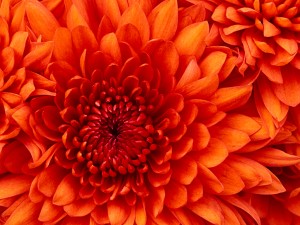
I hate the smell of hospitals. The white walls and the white beds and the white nurses nauseate me. I held on to the railing as I climbed up the stairs of the Zayed Military Hospital. Even the name scared me. But I was more afraid of what I was to face.
Adil, the seventeen-year-old boy I was about to meet, was suffering from a form of non-contagious leprosy. Yasmeen El Mallah, the Global Humanitarians president, had said to me, “He looks young for his age. He is seventeen but he looks about eight. He’s really smart though. Make sure you don’t let his appearance get to you.” But I did. And I hated myself for it.
I was told, along with five others, to sit in a room where they would bring Adil. I sat stiff, my back straight, my legs crossed, my hands clutching the armrest. Five minutes passed. Ten minutes passed. My heart beat faster and faster. And then Adil came. Everything changed.
My eyes were immediately drawn to his appearance. He was short and thin. He had no fingers, and his skin was disintegrating. There were reddish black patches all over his skin, marks from where it was peeling, fading away. He had short black hair that sat flat on his head. I smiled when the doctor introduced me to him. And the smile he gave me in return I can’t forget.
The boys started talking to him; it was easier for them because they spoke Arabic. Time passed by and I had said nothing. I felt shallow. I was nervous. I was intimidated by my surroundings. I was uncomfortable because of the difference that existed between Adil and me. It took many hours of meeting with him to realize that there wasn’t much difference.
I had initially dealt with my uneasiness by just uttering words here and there, not making much conversation with Adil. But as the meetings became more frequent I saw myself opening up. Adil remembered my name. He cracked a joke about me with Jimmy, another Global Humanitarians member. I still don’t know what he said. But it didn’t matter. I began talking to him, asking him questions, laughing at jokes. And my fear disappeared.
I discovered an intelligent young man who had taught himself to speak English. He loved soccer, watching movies, and playing computer games. He was a year older than me, and he looked eight years younger. But he was wise, knowledgeable, independent, loving, and determined. I have learnt many things from his faith in life.
I had experienced uneasiness and fear. I hadn’t known what to say, what to do, when to smile, when not to smile. I had let the gap between Adil and me, the difference of culture, gender, and lifestyles widen to an extent I became ashamed of. I had made myself become a different person because I was dealing with someone suffering from a disease that had altered his life. I had even been scared the first time I had looked at some parts of his body. But now I’m not. And because of Adil, I have gained the strength to overcome my fear of the different. I have gained the ability to speak with confidence to every kind of person. I have learnt to appreciate the beauty of life. Adil has taught me that life is worth living at any cost.
I know that if ever again, I am put in a situation where I have to meet someone who is different than I am, I will close the eyes of my mind. I will look beyond what I can see, and respond only to what I can feel. Because the world is full of different people, yet we’re all the same in many ways. We all experience emotions that break the barriers of difference. And I have learnt that you can close your eyes to what you don’t want to see, but you can’t close your heart to what you don’t want to feel.
Having written poetry since the age of five, I have always been amazed by the power of words. I have always wanted to be part of a class where I could read poems, laugh at the funny ones, talk about the deep ones, and even write some of my own and share them with others. But I have never had the opportunity that I think everyone should have. I would design a poetry class in which students both read and write the type of poetry they personally enjoy. Never in my English classes has poetry been given much importance. And I have always believed that if people actually spent more time exploring the world of poetic words, they would be amazed. A poetry class would open up to the students different perspectives, different worlds. It would allow them to express themselves in a way different from what they are accustomed to. I know that my refuge has always been my little white notepad that my dad bought for me from a small paper factory in Pondicherry, my home in India. It has on it scribbled words of my anger, happiness, love, and pain. Whenever my voice is choked, my hand gives way. I pull out my notepad and pour out my thoughts. It is for this reason that I love poetry, admire its diversity, and wonder at its power to move people. An open-minded poetry class, in which students are in an atmosphere to express themselves freely, would, if nothing else, motivate students to think. And most of the time, that’s all that needs to be done.
Uttama Patel
(Written some years ago by Uttama, a student of Journalism)





